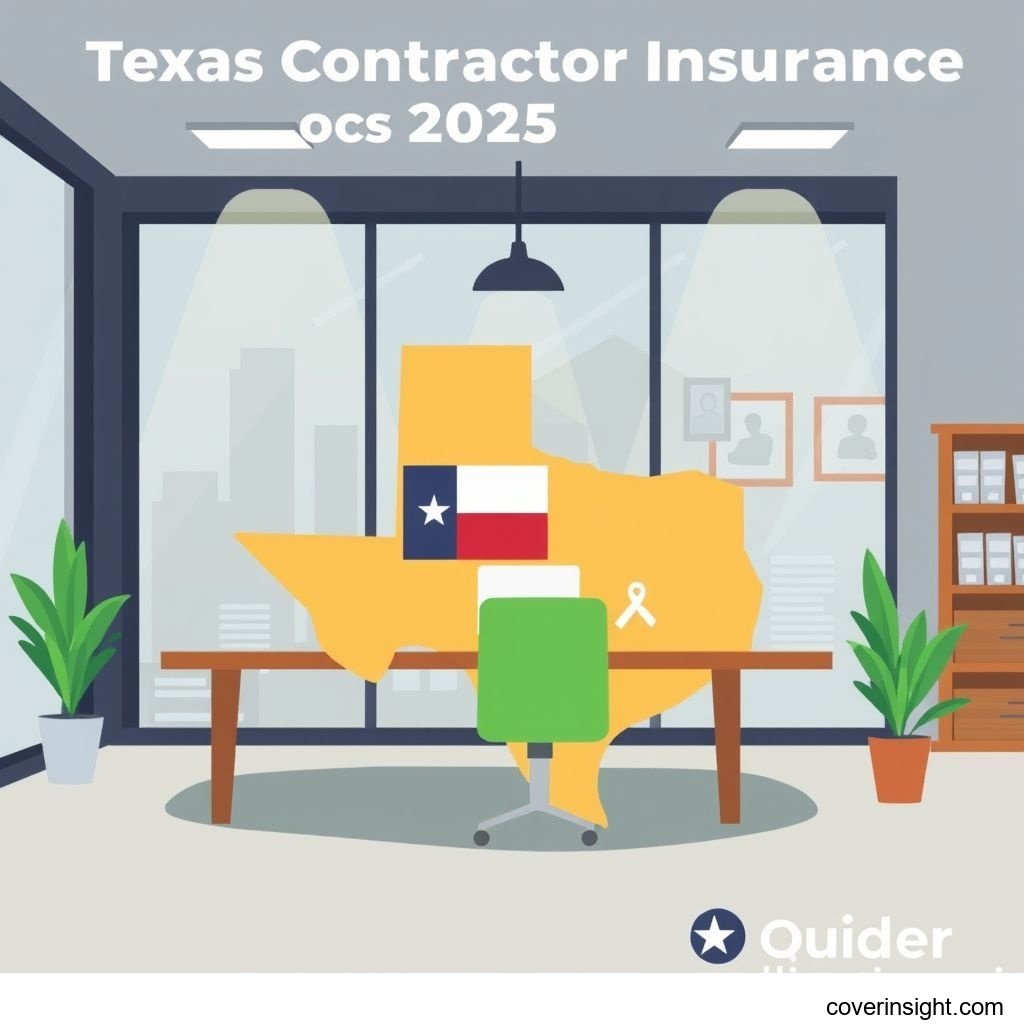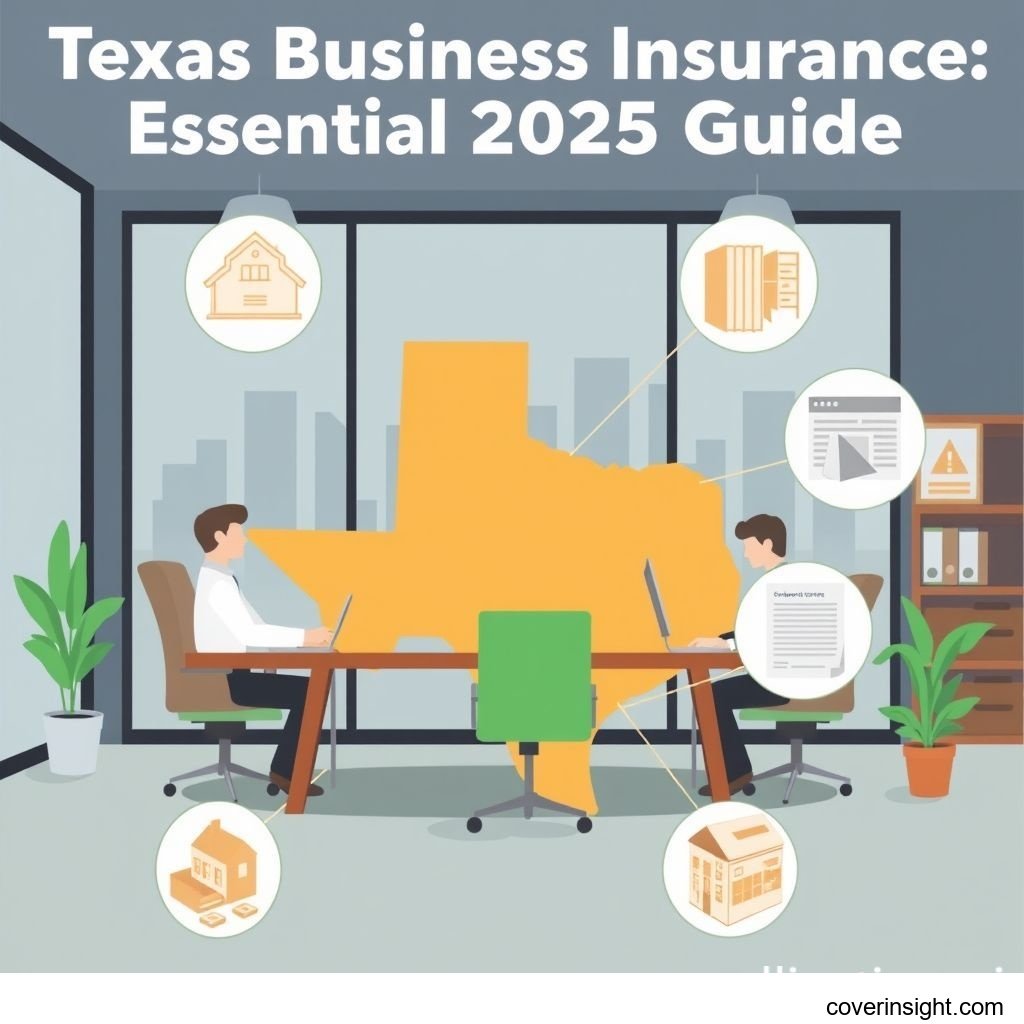Introduction
As 2025 approaches, understanding the landscape of business insurance in the United States becomes crucial for entrepreneurs. Among the titans of the insurance industry, statefarm continues to stand as a leading provider, serving millions of policyholders across the nation. For businesses operating in the vibrant Texas market, securing robust and appropriate coverage isn't just a best practice—it's a fundamental pillar of risk management and sustainable growth. This comprehensive guide will navigate the intricacies of Texas business insurance for the coming year, with a particular focus on the offerings from industry giants Progressive and statefarm, equipping you with the knowledge to make informed decisions for your enterprise.
Understanding Texas Business Insurance Needs
Texas, with its dynamic economy and diverse industries, presents unique challenges and opportunities for businesses. Navigating the complex world of commercial insurance requires a clear understanding of what’s at stake and what types of coverage are essential to protect your assets, employees, and reputation.
Why Business Insurance Matters in Texas
Operating a business, regardless of size or industry, inherently involves risk. From unforeseen accidents to lawsuits, economic shifts, or natural disasters common in Texas, businesses face numerous potential pitfalls. Comprehensive insurance coverage acts as a financial safety net, mitigating these risks and ensuring your business can recover and continue operations. Without adequate protection, a single significant event could lead to financial ruin. For many businesses, adequate coverage is not just advisable, but often a legal or contractual necessity.
Essential Types of Coverage for Texas Businesses
Businesses in Texas require a tailored approach to insurance, combining various policy types to create a robust safety net. Key coverages typically include:
-
General Liability Insurance: This is often the foundational policy, protecting your business from claims of bodily injury, property damage, and advertising injury that occur on your premises or as a result of your operations.
-
Property Insurance: Covers your business's physical assets—buildings, equipment, inventory—against perils like fire, theft, and certain natural disasters.
-
Workers' Compensation Insurance: While not always mandatory for all businesses in Texas, it’s highly recommended. It provides wage replacement and medical benefits to employees injured in the course of employment, in exchange for mandatory relinquishment of the employee's right to sue the employer for negligence.
-
Commercial Auto Insurance: If your business uses vehicles, whether for deliveries, client visits, or employee transport, commercial auto insurance is indispensable. This covers vehicles used for business purposes, protecting against liability for accidents and damage to your business vehicles.
-
Business Interruption Insurance: Helps replace lost income and cover extra expenses when your business is forced to temporarily close due to a covered property damage event.
-
Professional Liability (E&O) Insurance: Essential for businesses providing professional services, covering claims of negligence or errors in the services provided.
-
Directors and Officers (D&O) Coverage: This specialized insurance protects the personal assets of corporate directors and officers from lawsuits alleging wrongful acts in their capacity as fiduciaries. It is particularly crucial for larger corporations and non-profits, shielding decision-makers from significant personal financial exposure.
State Farm Business Insurance in 2025
As a household name in insurance, statefarm extends its comprehensive reach to the business sector, offering a broad spectrum of policies designed to meet the diverse needs of Texas enterprises. In 2025, statefarm continues to be a go-to choice for many business owners due to its widespread agent network and reputation for customer service.
State Farm's Approach to Small Businesses
Statefarm prides itself on a personalized approach, often leveraging its extensive network of local agents. This model allows business owners to work directly with an agent who understands the specific risks associated with their industry and geographic location within Texas. For small and medium-sized businesses, this personal touch can be invaluable when navigating complex policy options. Statefarm aims to simplify the insurance process, making it accessible even for first-time business insurance buyers.
Key Offerings from State Farm
Statefarm provides a comprehensive suite of business insurance products, adaptable to various industries:
-
Business Owners Policy (BOP): A popular choice for small to medium-sized businesses, statefarm's BOP typically bundles general liability, commercial property, and business interruption insurance into a single, convenient policy, often at a lower premium than purchasing each coverage separately.
-
Commercial Auto Coverage: Statefarm offers robust commercial auto insurance solutions, covering everything from single vehicles to entire fleets, ensuring that your business vehicles and drivers are protected on Texas roads.
-
Workers' Compensation: Helping businesses comply with state regulations and protect their employees, statefarm offers tailored workers' comp plans.
-
Professional Liability & Directors and Officers (D&O) Coverage: Recognizing the increasing demand for specialized coverage, statefarm also provides professional liability and specific directors and officers coverage options to shield businesses and their leadership from unique financial risks.
-
Other Specialized Policies: Depending on the business type, statefarm can also provide cyber liability, commercial umbrella, and specialized industry-specific coverages.
Progressive Business Insurance in 2025
Progressive, renowned for its innovative approach and competitive pricing, is another formidable option for Texas businesses in 2025. While perhaps best known for personal auto insurance, Progressive has significantly expanded its commercial insurance offerings, leveraging technology to provide efficient and customizable solutions.
Progressive's Competitive Edge
Progressive distinguishes itself through its embrace of technology, offering streamlined online quoting processes and often providing immediate coverage. This can be a significant advantage for fast-paced businesses or those seeking quick comparisons. Their competitive pricing models and various discount opportunities also make them an attractive option. Progressive's broad network of independent agents and brokers ensures that businesses can still receive personalized advice while benefiting from their tech-forward platform.
Tailored Solutions for Texas Entrepreneurs
Progressive understands that no two businesses are alike. Their offerings are designed for flexibility, allowing business owners to build custom insurance packages.
-
Commercial Auto Insurance: Progressive is a leader in commercial auto insurance, offering extensive options for all types of business vehicles, from contractors' trucks to ride-share fleets. They are known for providing competitive rates and various endorsements to suit specific needs.
-
General Liability & BOPs: Similar to statefarm, Progressive offers comprehensive general liability and Business Owners Policies, combining essential coverages for efficiency.
-
Professional Liability: For service-oriented businesses, Progressive offers professional liability to protect against errors and omissions.
-
Workers' Compensation: Progressive facilitates workers' compensation coverage through a network of top-rated providers, ensuring Texas businesses can meet their obligations.
-
Specialty Coverage: They also offer solutions for cyber insurance, commercial property, and various other niche coverages, making them a versatile provider for many industries.
Coverage Details
Understanding the specifics of what your business insurance policy includes and excludes is paramount. This knowledge prevents unexpected gaps in coverage and ensures your business is truly protected.
What’s Included
Business insurance policies are highly customizable, but generally, they cover financial losses arising from specific perils or liabilities.
-
Property Damage: Coverage for physical damage to your business premises, equipment, inventory, and other assets due to covered events such as fire, storms, vandalism, or theft.
-
Bodily Injury Liability: Protection if a third party is injured on your business property or due to your business operations, covering medical expenses and legal fees if a lawsuit arises.
-
Advertising Injury: Coverage for claims arising from libel, slander, copyright infringement, or false advertising in your business's promotional activities.
-
Lost Income: Business interruption insurance steps in to replace lost profits and cover ongoing operating expenses if your business is forced to temporarily close due to a covered property loss.
-
Vehicle-Related Damages: Comprehensive commercial auto insurance includes coverage for damage to your business vehicles, as well as liability for injuries or damages your vehicles cause to others.
-
Professional Malpractice/Errors: Professional liability protects against claims of negligence, errors, or omissions in the professional services your business provides.
-
Fiduciary Responsibilities: Directors and officers coverage specifically protects the personal assets of your company's leaders against claims of wrongful acts in their management capacity, such as breach of duty or misrepresentation.
Here is a quick list of common inclusions:
-
General Liability
-
Commercial Property
-
Business Interruption
-
Workers' Compensation
-
Commercial Auto
-
Professional Liability
-
Directors and Officers Liability
Common Exclusions
While comprehensive, no insurance policy covers everything. Awareness of common exclusions is vital to avoid unwelcome surprises.
-
Intentional Acts: Damages or injuries caused by deliberate actions of the policyholder are typically not covered.
-
Wear and Tear: Gradual deterioration of property due to age or normal use is generally excluded.
-
Pre-existing Conditions: Damages or liabilities that existed before the policy's effective date are usually not covered.
-
Specific Disasters: Certain natural disasters like floods and earthquakes are often excluded from standard property policies and require separate, specialized coverage.
-
Nuclear Hazards & War: These are almost universally excluded due to their catastrophic and unpredictable nature.
-
Criminal Acts: Losses resulting from criminal acts committed by the policyholder or employees (e.g., embezzlement) are often excluded from standard coverages, though specific bonds might cover employee dishonesty.
-
Pandemics/Communicable Diseases: Business interruption claims related to global pandemics often fall under specific exclusions, as highlighted during recent global health crises.
Cost Analysis
The cost of Texas business insurance can vary widely. Understanding the factors that influence premiums and knowing how to save money are critical for managing your budget effectively.
Price Factors
Several key elements determine how much you'll pay for business insurance in Texas:
-
Industry and Business Type: High-risk industries (e.g., construction, manufacturing) typically pay more than lower-risk ones (e.g., consulting firms).
-
Location: Geographic location within Texas affects rates due to factors like crime rates, property values, and susceptibility to natural disasters (e.g., coastal areas).
-
Size of Business: Larger businesses with more employees, higher revenues, and more assets generally face higher premiums.
-
Claims History: Businesses with a history of frequent or large claims will likely pay more than those with a clean record.
-
Coverage Limits and Deductibles: Choosing higher coverage limits or lower deductibles will increase your premium. Conversely, opting for lower limits or higher deductibles can reduce it.
-
Safety Measures: Implementing robust safety protocols, security systems, and risk management practices can lead to lower premiums.
-
Number and Type of Vehicles (for Commercial Auto): For commercial auto insurance, the number, type, and age of vehicles, as well as the driving records of employees, significantly impact costs.
-
Employee Count and Payroll (for Workers' Comp): These factors directly influence workers' compensation premiums.
Saving Tips
Reducing your insurance costs without compromising essential protection is achievable with strategic planning.
-
Bundle Policies: Both Progressive and statefarm often offer discounts when you purchase multiple policies (e.g., General Liability, Commercial Property, and commercial auto insurance) from them.
-
Implement Risk Management: Proactive safety programs, employee training, and robust security measures can demonstrate to insurers that you are a lower risk, potentially leading to discounts.
-
Increase Deductibles: If your business has a healthy cash reserve, opting for a higher deductible can significantly lower your premium. Just ensure you can comfortably cover the deductible if a claim arises.
-
Review Policies Annually: Business needs change. Regularly review your policies to ensure you're not over-insured or under-insured. Remove coverage you no longer need.
-
Maintain a Good Claims History: Few or no claims over time will help keep your premiums stable or even reduce them.
-
Shop Around: Obtain quotes from multiple providers, including statefarm and Progressive, to compare pricing and coverage options. Don't just stick with the first quote you receive.
-
Ask About Discounts: Always inquire about any available discounts, such as those for safety programs, professional associations, or claims-free periods.
Choosing the Right Provider: State Farm vs. Progressive
Selecting the ideal business insurance provider for your Texas operation involves more than just comparing prices. It’s about aligning with a company that understands your unique needs and offers reliable support.
Factors to Consider
When weighing your options between providers like statefarm and Progressive, consider these crucial factors:
-
Coverage Options: Does the provider offer all the specific types of coverage your business needs, including niche options like directors and officers coverage?
-
Customer Service and Claims Process: Research their reputation for customer support and efficiency in handling claims. A smooth claims process can be invaluable during a crisis.
-
Financial Strength: Choose insurers with strong financial ratings, indicating their ability to pay out claims even during widespread events. You can check ratings from organizations like A.M. Best. Visit the National Association of Insurance Commissioners (NAIC) to research insurers' financial strength and complaint data.
-
Agent vs. Online Experience: Do you prefer working with a dedicated local agent (like statefarm's model) or a more streamlined, online-driven process (often preferred with Progressive)?
-
Industry Expertise: Does the insurer have experience with businesses in your specific industry, understanding its unique risks?
-
Policy Flexibility: Can policies be easily adjusted as your business grows or changes?
Getting Competitive Quotes
To ensure you secure the best possible rates and coverage for your Texas business, it's essential to:
-
Gather Detailed Information: Have all your business details ready, including legal structure, revenue, number of employees, industry codes, detailed asset lists, and claims history.
-
Contact Multiple Providers: Don't limit yourself to just one or two. Reach out to statefarm, Progressive, and other reputable insurers or independent brokers.
-
Compare Apples to Apples: When reviewing quotes, ensure you are comparing identical coverage limits, deductibles, and policy types. A lower premium might mean less coverage.
-
Ask Questions: Don't hesitate to ask your agent or broker to explain anything you don't understand about the policy terms, exclusions, or premium calculations.
-
Leverage Brokers: An independent insurance broker can often provide quotes from multiple carriers, simplifying the comparison process and offering expert advice.
For further information on state-specific regulations and consumer resources, you can consult official government resources. Find your State Insurance Department here. Additionally, general information on financial protection can be found on broader Insurance Resources Global. For more focused information relevant to U.S. businesses, explore US Insurance Home.
FAQs
How much does statefarm business insurance cost?
The cost of statefarm business insurance, like any insurer, varies significantly based on factors such as your industry, location in Texas, size of your business, specific coverages needed (e.g., general liability, commercial auto insurance, directors and officers coverage), and your claims history. Small businesses might pay anywhere from a few hundred to several thousand dollars annually. The best way to get an accurate estimate is to obtain a personalized quote directly from a statefarm agent.
What affects business insurance premiums?
Premiums are influenced by numerous factors, including the perceived risk of your industry, the physical location of your business, the number of employees, your business's annual revenue, its claims history, the type and value of property insured, and the specific coverage limits and deductibles you choose. The more comprehensive and higher-limit your coverage, the higher your premium will generally be.
Is business insurance mandatory in Texas?
While Texas does not mandate general liability or commercial auto insurance for all businesses, certain types of coverage are legally required or highly recommended. For instance, if you have employees, workers' compensation insurance is mandatory for most employers (though Texas is unique in that it offers a non-subscriber option, which carries significant risks). Certain industries or professions also have specific insurance requirements. Additionally, landlords or clients may require you to carry specific coverages before doing business.
How do I choose the right business insurance policy?
Choosing the right policy involves assessing your business's unique risks, understanding the types of coverage available, and comparing quotes from multiple reputable providers like statefarm and Progressive. Consider your industry's specific vulnerabilities, the value of your assets, your legal liabilities, and whether you need specialized coverages such as directors and officers coverage. Consulting with an experienced insurance agent or broker can help you identify appropriate coverage levels and options.
What are the consequences of not having adequate business insurance?
Operating without adequate business insurance can expose your company to severe financial risks. Without coverage, you would be personally responsible for costs related to lawsuits, property damage, employee injuries, and other unforeseen events. This could lead to significant financial losses, forced closure of your business, loss of personal assets, and damage to your business's reputation. In some cases, it can also lead to legal penalties or an inability to secure contracts or leases.








Comments